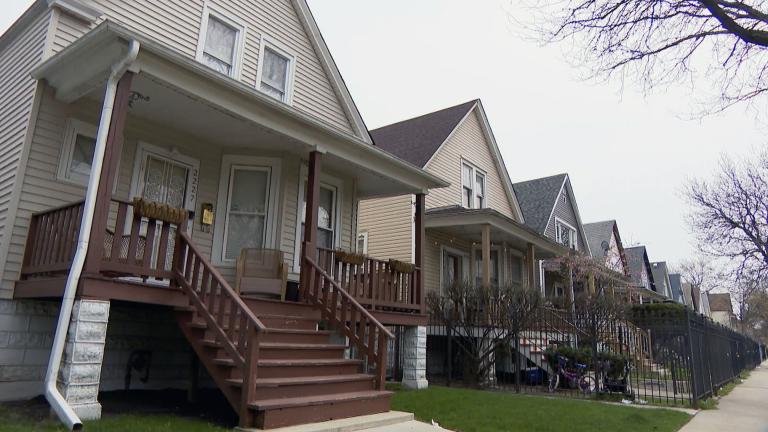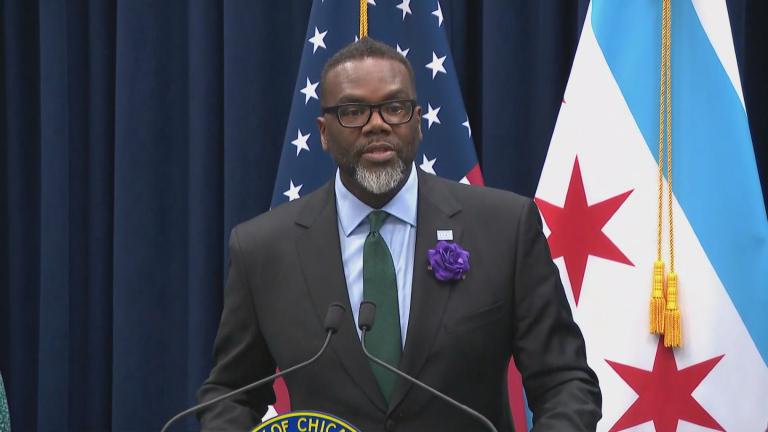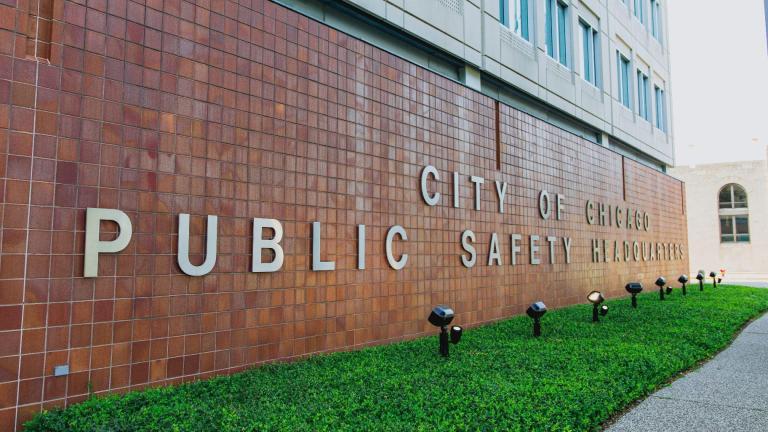The Chicago City Council approved Mayor Lori Lightfoot’s $16.7 billion budget on Wednesday with the backing of progressive members who celebrated the spending plan’s focus on affordable housing, mental health, violence prevention, youth job programs and help for unhoused Chicagoans.
The budget, which takes effect Jan. 1, 2022, includes a property tax hike that will add $38 per year to the tax bill for the owner of a home worth $250,000 to cover the increase in the cost of living and to start paying off the city’s infrastructure plan, according to city officials.
The final vote on the tax levy was 32-18. The budget itself passed 35-15.
Lightfoot hailed the budget as the “most progressive and forward-looking budget in our city’s history.”
Flush with $1.9 billion in federal COVID-19 relief cash, Lightfoot was able to ensure her spending plan’s approval by funding a range of programs, including a plan to use $31.5 million to send cash assistance to Chicagoans struggling amid the continuing COVID-19 pandemic.
That plan will send 5,000 low-income households $500 per month for a year as part of what will be the nation’s largest test of a universal basic income.
That plan prompted several conservative members of the Chicago City Council to vote against the budget, including Ald. Matt O’Shea (19th Ward) who said after the meeting the city could not afford it.
“Just giving money out to people when there are tens of thousands of jobs in our city right now, that’s not something I can support,” O’Shea said.
The plan was also not endorsed by the members of the Chicago City Council’s Black Caucus, who urged the mayor to first address the need for reparations to be paid to the descendants of enslaved African Americans.
The spending plan closes a $733 million budget gap in the 2022 fiscal year, as well as a $965 million shortfall in the city’s 2020 and 2021 budgets caused by the economic collapse triggered by the coronavirus pandemic.
While Ald. Michael Scott (24th Ward) — an ally of the mayor — said the spending plan is fiscally prudent and meets the demand of progressive alderpeople to provide direct aid to struggling Chicagoans and small businesses.
“There has been a great tightrope walked between making sure we invest in these communities but do not saddle them in the future with what we’re doing today,” Scott said.
But Ald. Raymond Lopez (15th Ward) — one of the mayor’s most frequent critics — said the budget was “grossly” out of balance.
“I feel like Christmas has come early,” Lopez said. “Everybody seems to be getting what they want.”
Ten of the 18 votes against the city’s tax levy came from members of the more conservative wing of the City Council, while just two members of the City Council’s Progressive and Socialist Caucus voted no: Alds. Jeanette Taylor (20th Ward) and Byron Sigcho-Lopez (25th Ward.)
Sigcho-Lopez said that progressives on the City Council “settled for a pittance” and said the mayor could not be trusted to fulfill the promises made by the budget.
Of the 15 alderpeople who voted against the budget, three are members of the Progressive Caucus: Ald. David Moore (17th Ward), Sigcho Lopez and Taylor.
“We had an opportunity to do something right and again it’s crumbs and cakes,” Taylor said after the meeting. “We could have did so much better. A very [big] missed opportunity.”
The support for the mayor from the progressive members of the caucus represents a significant change from the votes on the 2020 and 2021 budgets. Those votes opened a breach between Lightfoot, who ran for mayor in 2019 as a progressive, and the Progressive Caucus that shaped much of the past two years of Chicago politics.
The City Council also amended Chicago’s 2020 and 2021 budgets to repay $465 million in high-interest debt the city incurred in 2021 and to formally cancel plans to borrow another $500 million the city delayed after the approval of the American Rescue Plan.
In addition to Taylor, Moore and Sigcho Lopez, six members of the Progressive Caucus voted against that measure, which passed 31-19.
In addition, the city will refinance $1.2 billion to save $250 million and to borrow an additional $660 million for the Chicago Recovery Plan, which will spend $1.9 billion on a host of initiatives designed to fuel the city’s recovery from the COVID-19 pandemic and the economic collapse it triggered.
Representatives of the city’s Office of Management and Budget have not responded to repeated questions from WTTW News on Wednesday about how much property tax revenue it would cost the city to pay off those bonds starting in 2023.
As part of a series of last-minute changes to the budget, Lightfoot agreed to support the creation of a subcommittee of the Budget and Government Operations Committee to track the plan’s spending.
In addition, Lightfoot agreed to spend $6.3 million to hire 29 new employees at the city’s public mental health clinics, a 73% increase in staff that represents the largest investment of taxpayer funds in those clinics since former Mayor Rahm Emanuel closed six of the city’s 12 clinics in 2011.
The city’s 2022 budget calls for $1.3 billion, or about 68% of the city’s share of federal relief funds, to cover the cost of providing city services and paying city workers between 2020 and 2023 to make up for revenue lost as a result of the economic collapse triggered by the pandemic.
The budget also makes Juneteenth the city’s 10th annual paid holiday, four months after President Joe Biden signed legislation to make the remembrance of the end of slavery a federal holiday.
The plan also sends $2.3 billion to the city’s four pension funds, an increase of $255 million as compared with 2021.
The spending plan also earmarks $275 million to send retroactive pay increases to Chicago police officers as called for in the city’s contract with the Fraternal Order of Police Lodge 7.
The budget also gives all 50 aldermen $100,000 each to spend on microgrants to help their communities recover from the pandemic, despite concerns that it would create slush funds ripe for abuse.
Contact Heather Cherone: @HeatherCherone | (773) 569-1863 | [email protected]







